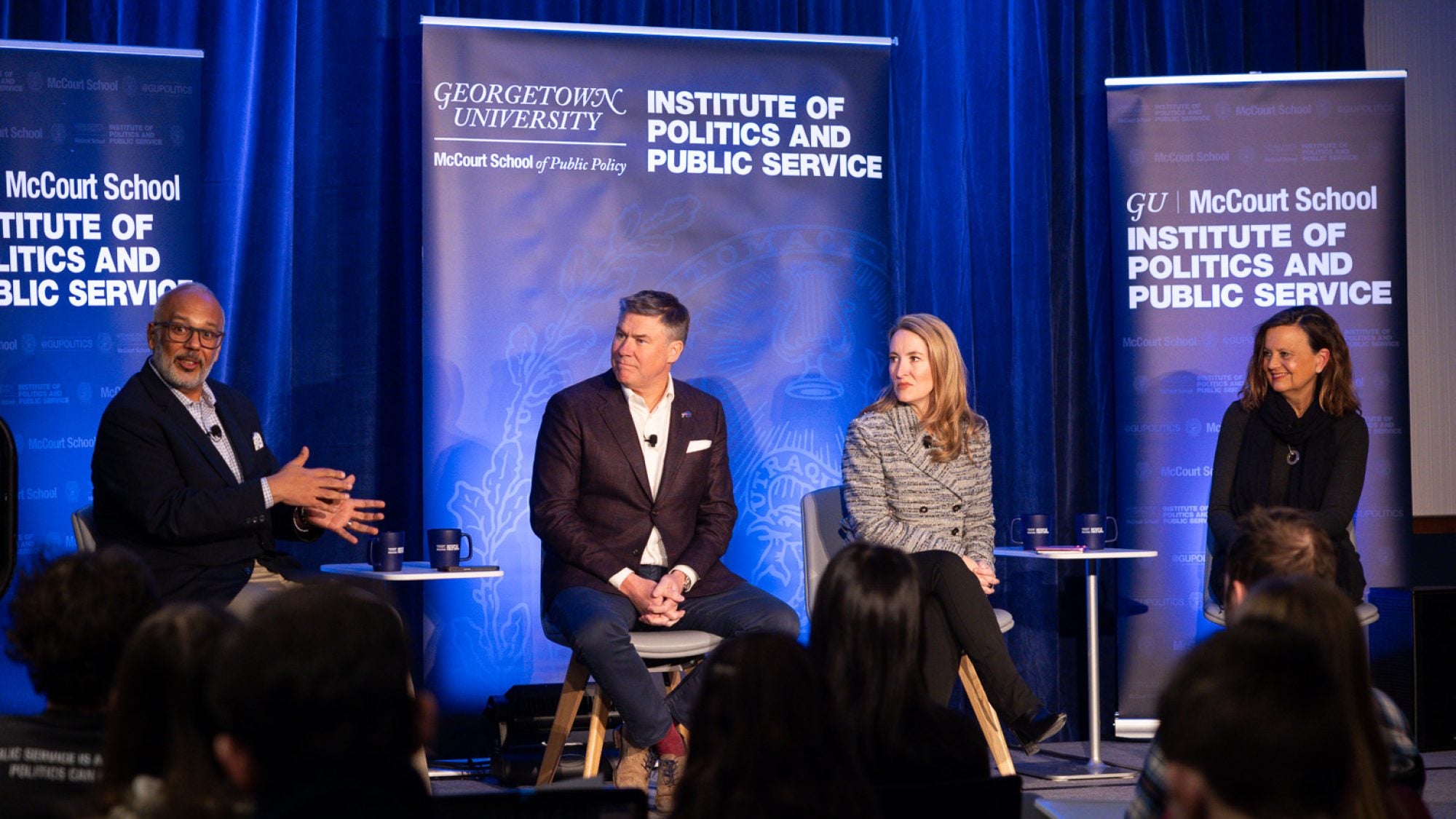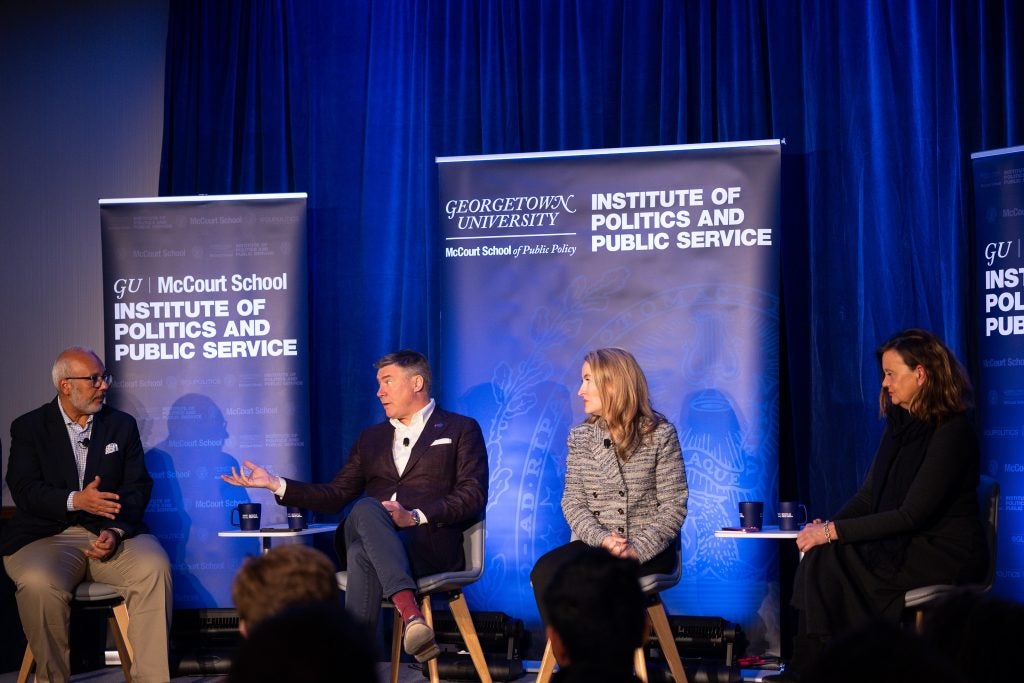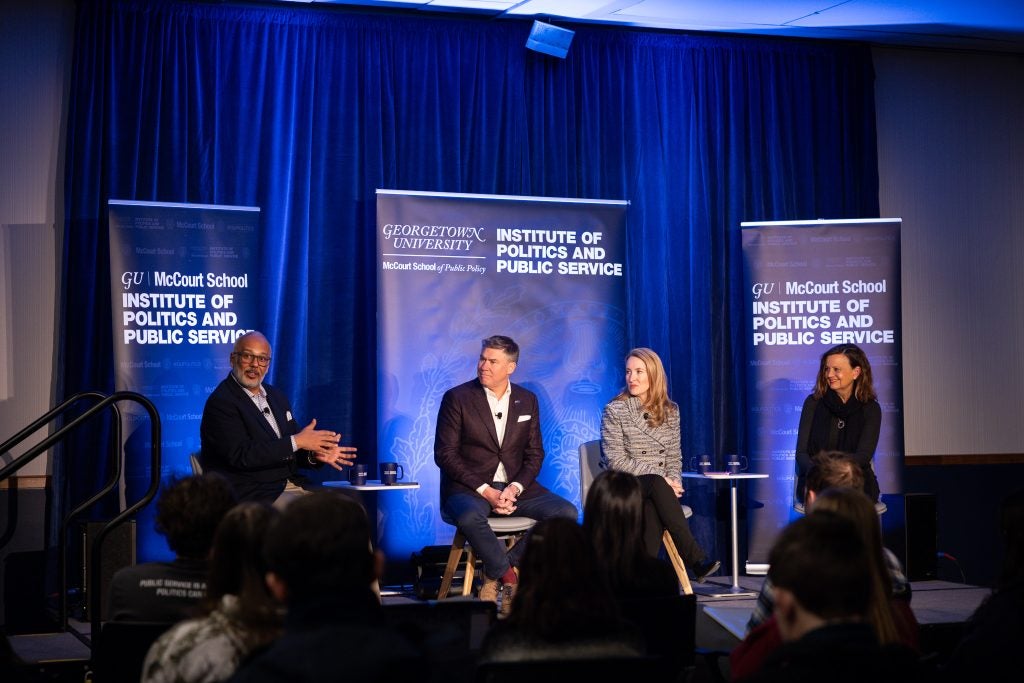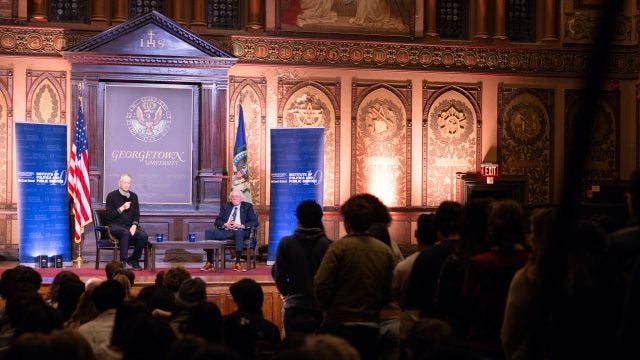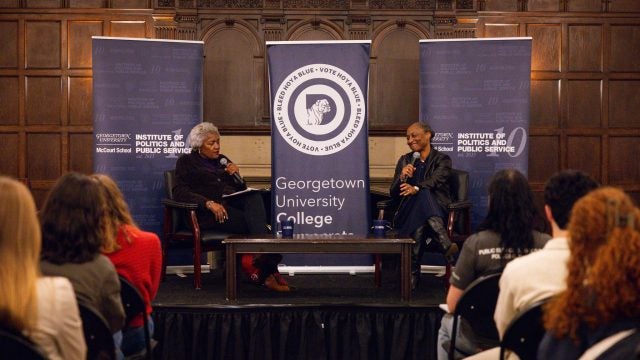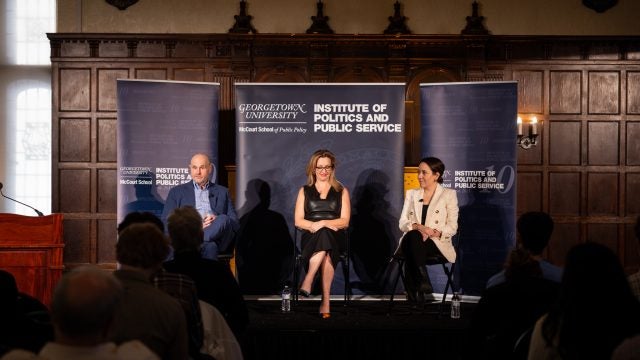On January 21, 2025, Georgetown University’s Institute of Politics and Public Service kicked off its tenth year of programming with a conversation dedicated to the implications of the Republican Party’s control of both houses of Congress and the Presidency.
Students gathered in the Healey Family Student Center Social Room to discuss GOP strategies and objectives for the new Trump Administration and the 119th Congress with a panel of Republican operatives, moderated by GU Politics Executive Director Mo Elleithee. The panel featured Sharon Soderstrom, former Chief of Staff to Senate Republican Leader Mitch McConnell, Machalagh Carr, Spring ‘24 GU Politics Fellow and former Chief of Staff to House Speaker Kevin McCarthy, and Mike Dubke, Fall ‘17 GU Politics Fellow and former Communications Director for the First Trump Administration.
Before discussing the GOP trifecta’s future, the panel answered questions about the 2024 Election and what it meant for the apparent Republican mandate. Soderstrom cited Democrats’ failure to address “pocketbook issues” as the main reason behind their sizable electoral defeat. Dubke stressed that Trump and Republicans succeeded in appealing to “everyday Americans,” while Democrats ran an “elitist campaign.”
Describing the anti-establishment agenda of the Republican trifecta, Dubke predicted that “the legislative branch is going to drive [the policy agenda] now, more so than the executive branch.” Soderstrom added that Congressional Republicans will be incentivized to “give some successes to a new President” by taking the lead on conservative policies. Connecting the policies of the new administration, Carr suggested that they all contributed to a “reckoning of the size of our federal government.”
Next, Elleithee questioned the narrative that Republicans focused on “pocketbook issues” by arguing that Trump’s first day executive orders were centered around cultural issues instead. Dubke and Carr pushed back, however, with Dubke pointing out that economic policy is typically the legislative branch’s responsibility. Carr added that Trump’s OECD executive order that ended the practice of European countries taxing U.S. corporations was important for American economic sovereignty.
The panel then focused on the individuals leading each branch of the GOP trifecta. On Senate Majority Leader John Thune, Soderstrom cited his experience as Republican Whip and knowledge of Senate rules and personalities as chief qualifications. She described Thune as “a person of a lot of principle” and credited him with an “approach to people [that] is humble, but decisive.” As for House Speaker Mike Johnson, Carr said “he learned a lot” during his first fourteen months in office, and that he will be ready to “forge ahead” with Thune as the 119th Congress gets underway. Speaking about President Trump, Dubke claimed that “Trump 2.0 is Trump 1.0 with confidence,” arguing that his experience in governing was reflected in the dozens of executive orders signed on day one.
The conversation was then opened up to Georgetown students, who posed questions about what the GOP’s policies could look like in practice. On foreign policy and NATO–U.S. relations, Dubke said Trump’s status as the “ultimate wildcard” could “throw a wrench into international politics” in a way that benefits U.S. interests. Carr spoke about Trump’s proposed tariff policies, saying that the mere pressure of high tariffs could have an “effect of keeping countries in check” and prevent the exploitation of the American economy by foreign actors.
To close, Elleithee asked the panel about whether the GOP could maintain their powerful trifecta in elections to come. “‘Promises made, promises kept’ is going to be the mantra,” responded Dubke. The panelists stressed the importance of the GOP’s success with regard to the economy, global peace, and immigration for maintaining control of the American electorate’s trust in 2026 and beyond.
This article was written by James Long, a freshman in the Walsh School of Foreign Service.
Watch the full recording below.
